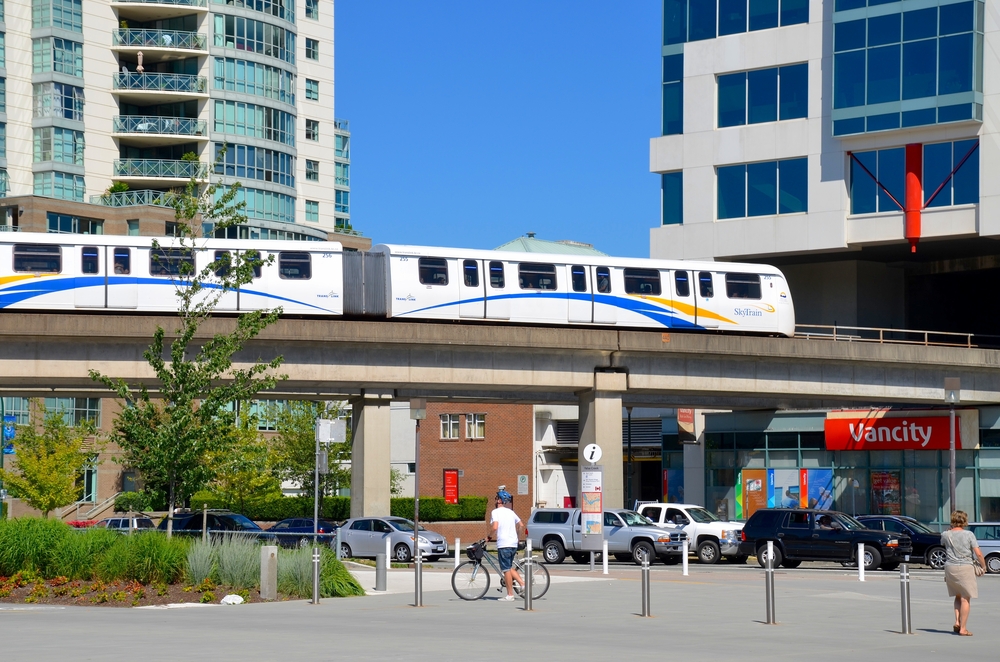Breaking
Vancouver transit vote ‘case study’ in national transportation funding crisis
VANCOUVER — Ballots for an unprecedented plebiscite begin arriving in mailboxes on Monday asking Vancouver-area residents whether they’re willing to foot the bill for a massive public transportation overhaul.
The vote gives citizens the option of paying a 0.5 per cent sales tax in exchange for a vastly upgraded rapid transit system, hundreds more buses, additional ferries and a new bridge — a mammoth package projected to cost $7.5 billion over a decade.
Experts say the transportation problems faced by the region’s mayors are emblematic of a dilemma for many big Canadian cities: crumbling infrastructure threatening to buckle under growing populations and no money to fix it.
“It’s a huge problem everywhere,” said Prof. Patrick Condon, chair of the urban design program at the University of British Columbia.
“At the same time, the costs of maintaining the infrastructure are increasing proportionately, the taxpayers’ ability and their willingness to pay for that increase is decreasing. The current plebiscite is very good case study of that problem.”
The Vancouver area faces the same conundrum as Toronto and Calgary, which are both plugging away at expensive transit improvements, and several U.S. cities such such as Portland, Seattle and Los Angeles.
On its face, the Vancouver plebiscite appears to be a stop-or-go decision between tax and transit.
But proponents — ranging from mayors to big business to police chiefs — argue the vote is actually a pivotal choice.
A Yes vote, they say, will allow them to transform deteriorating infrastructure into their vision for economic and environmental prosperity; a No vote would mean an unsustainable crush of cars on roads.
“This is about the future of the region — how it’s going to be shaped,” said transportation expert Gordon Price, director of the city program at Simon Fraser University.
The transit champions say upgrades are crucial for accommodating an estimated influx of one million more residents into the Vancouver region over the next 30 years.
Opponents have vilified TransLink, the agency that operates the region’s transit system, as wasteful.
Residents must mail in their vote by May 29, with the result expected in June.
Funding infrastructure projects in Canada, and elsewhere in North America, is a perennial challenge that’s been most commonly answered by taxpayers, said Fiona Crofton, a sustainability professional and former University of British Columbia professor.
“There are various ways, and people will fall in various camps about what we should do, and how we should do it,” she said. “That’s where the big crux comes of course, in terms of the diversity of perception and access and power.”
Big city mayors congregate regularly to brainstorm about tackling their funding issues, and Vancouver Mayor Gregor Robinson specifically raised the transportation concern at their meeting in Toronto last month. Mayors have also rallied to coax more funding from the provincial and federal governments, where the standard formula has traditionally divided the cost into thirds.
“Municipalities don’t have that many options for funding, unfortunately, under our system,” said Brent Toderian, a global city planning consultant and former chief planner for Vancouver.
B.C. municipalities have nonetheless offered several solutions to the transit crisis since the early 2000s, but the province repeatedly rejected proposals from vehicle levies to parking taxes, to carbon taxes.
The current plebiscite is considered a last-ditch effort. Rather than using the only formal fundraising tool at the mayors’ disposal — the politically unsavoury option of hiking property taxes — they asked the premier to green-light a new sales tax.
Legislation governing TransLink specifically allows for taxes to generate the projected $250 million funding per year the new plan would require. But in 2013, Premier Christy Clark promised a vote as the path to securing any new funding.
The mayors seized the chance to break the impasse. But several observers contend a plebiscite is no way to set policy in Canada.
“It definitely frightens me when I hear other parts of the country speak positively about the fact we’re having a referendum,” said Toderian.
“That perception doesn’t understand the politics of what’s been going on here.”
Price, the Simon Fraser University professor, said that if the plebiscite fails, it will deliver a “devastating” blow to the made-in-B.C. vision of “cities in a sea of green” that’s shaped the region for the past 40 years.
“If we’re not going to tax ourselves anymore for these collective goods that deliver services broadly across the community? That’s a different kind of Canada.”






















